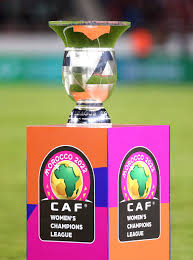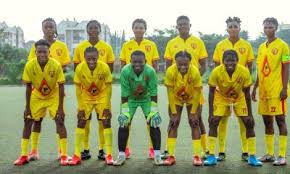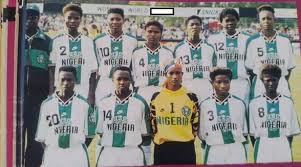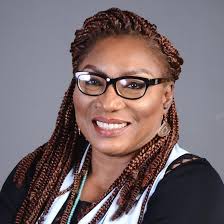By Harry Awurumibe, Africa’s No.1 Women Football Journalist

It is no longer news that no Nigerian club has lifted the prestigious CAF Women’s Champions League trophy since it was introduced by the Confederation of African Football (CAF) four years ago despite the intimidating record of the country’s senior women’s football teams, Super Falcons and the West African nation’s pedigree in women’s football in Africa and globally.
Super Falcons, the most successful team in the continent have won the most prestigious continental title the Women’s Africa Cup of Nations (WAFCON) 11 times dating back to 1991 when Nigeria beat other countries to become the sole African representative in the first-ever FIFA Women’s World Cup final in China in 1991.
Also, Nigeria represented Africa in the 2nd FIFA Women’s World Cup finals in Sweden in 1995 after emerging the continental champion in the Pre-World Cup African qualifiers even as Nigeria was the first country to host and lift WAFCON trophy then known as Africa Women Championship (AWC) in 1998 involving seven countries after Mozambique pulled out after qualifying for the tournament.
Infact, Nigeria won the first edition of the biennial tournament staged on home soil without conceding a single goal in five matches just as the country and South Africa went ahead to host the competition three times with Equatorial Guinea hosting it twice while Namibia, Cameroon, Ghana and Morocco have all played hosts once.
Aside being African champions in 1991 and 1995, Nigeria went ahead to lift WAFCON trophy for the unprecedented five straight times in 1998, 2000, 2002, 2004 and 2006 before Equatorial Guinea halted the sixth trophy sweep in 2008 when the oil-rich country became the 2nd nation after Nigeria to lift the trophy by beating South Africa 2-1 in the final in Malabo, Equatorial Guinea.
But Nigeria bounced back to win the continental trophy again in 2010 in South Africa although she failed to retain it in 2012 as Equatorial Guinea again hosted and won after defeating South Africa 4-0.
Not to be outdone by Equatorial Guinea, Nigeria returned to the winning ways after the 2012 debacle as the West African nation won three straight trophies in 2014, 2016 and 2018 in Namibia, Cameroon and Ghana respectively.

Mission Impossible…Edo Queens FC failed to lift the trophy in Morocco
The country only stumbled in the last tournament held in Morocco in 2022 which was won by South Africa for the first time after playing in the final for the 6th time since the completion started in 1998.
Aside dominating Africa, Nigeria has qualified for every FIFA Women’s World Cup finals, finished in quarter-final stage in 1999, qualified for three Olympic Games and reached the quarter-final stage too as well as lifted the West African Football Union (WAFU- B) trophy in 2018.
Also, Nigeria’s age-grade women’s football teams have been dominating Africa for decades and have qualified for every FIFA Women’s U-17 and U-20 Women’s World Cup finals respectively with Flamingos winning the Bronze medal two years ago.
In addition to the above pedigree, there is no argument that Nigeria started organised women’s football competitions including women’s football league and Football Association FA Cup earlier than most countries in Africa.
In fact, inter-club women’s football competitions started in Nigeria in the late 1980s and by 1991, the local leagues supplied 100% of the pioneer players of Super Falcons who went on to play three straight FIFA Women’s World Cup finals and Sydney 2000 Olympic Games.
Records showed that women’s football started in Nigeria at national level after it received Nigerian government’s attention when then Minister of Youth and Sports, Alabo Tamuno Graham-Douglas granted the request of pioneer club owners under the umbrella of Nigeria Female Football Proprietors Association (NIFFPA) led by Mr. Christopher Abisuga, Princess Hannah Bola Ngozi Jegede, Elder Elderson Kuejunbola, Mr. Joseph Othowowa, Chief Larry Ezeh and Peter Eruteya, to include women’s football as a none scoring event of the 1989 National Sports Festival (NFS) hosted by Lagos.
After the success of the NSF experiment, the Nigeria Football Association (NFA) under Pa Chuba Ikpeazu formerly recognised women’s football and quickly gave its approval for the 1st National League sponsored by Princess Hannah Bola Ngozi Jegede in 1990. It featured 42 clubs from across Nigeria.
By 1991, Nigeria’s 1st Female Football Challenge Cup (FA Cup) competition which also saw no fewer than 42 clubs was organised by NFA with the final match at the National Stadium Surulere, Lagos on Saturday, September 28, 1991 watched by Nigeria’s late 1st Lady (Mrs) Maryam Babangida.
Since then women’s football has taken roots in Nigeria with the three women’s national teams Super Falcons, Falconets and Flamingos being the beneficiaries of the products of the Nigeria Women’s Football League (NWFL) which churned out quality players in the early years.
Again, as the women’s league continued to grow in leaps and bound, it attracted players from Sierra Leone, Equatorial Guinea, Ghana, Cameroon and Benin Republic as they flooded Nigerian clubs like Rivers Angels of Port Harcourt; Lagos-based Princess Jegede Babes; Simbiat Abiola Babes later Kakanfo Queens of Abeokuta; Ufuoma Babes of Warri and few others.
Against this backdrop, it was no surprise that Nigeria produced a strong national team when CAF introduced continental women’s football competition in 1991 and the trend continued until 2020s when things began to fall apart as the bulk of Super Falcons players now come from overseas.

Pioneers All…Pioneer members of Super Falcons (1991 to 2000) were 100% products of highly successful local women’s football league sponsored by Pepsi from 1997 to 2001.
Today, only few players from the NWFL make it to the Super Falcons as 99% or even 100% foreign-based players are invited to camp especially during the reign of the immediate past coach of Super Falcons Randy Waldrum who went to major competitions including WAFCON, FIFA Women’s World Cup and Olympic Games with only foreign-based players.
Furthermore, unlike in the early years of the development of women’s footbal in Nigeria when corporate sponsorships and endorsements of clubs and players were the order of the day, the NWFL has no sponsors for several years now.
Specifically, it is indisputable that since beverage giants Pepsi ended its Five-year multi million sponsorship of the Female Football League, Super 6 and Female Challenge Cup from 1997 to 2001, neither the past nor present NWFL Management/Board and parent body NFF has been able to attract any corporate sponsor for the women’s league.
More troubling is the fact that the field of participating clubs in the league have continued to shrink as the NWFL has significantly reduced from 42 clubs in the 1990s to 2000s to 16 which are further divided into two with eight clubs in a group and playing only 12 matches per team in a season.
For this reason, the clubs in Nigeria today play fewer games in a season, a situation which have made any club from the country participating in the CAFWCL very vulnerable to be knocked out in the early stage of the competition because they have not played alot of matches in the season in order to be well prepared for the continental club competition.

New Sherrif in Town…Ms Nkechi Obi, Chairman, Nigeria Women’s Football League
Worse, the second tier league, the 20-club competition called Championship League and 150- team States League have been in comatose and life-support for so long as those running the NWFL in the past decade have failed to attract any corporate sponsorship despite the huge promises they made prior to landing the top post with the ultimate aim of being made an NFF Executive Committee Member.
Expectedly, this ugly state of affairs of women’s football league in Nigeria and the unprofessional ways of running the league coupled with the country’s economic hardships, have made it difficult for them to follow the NWFL Calendar of Activities which categorically stated that the league will start on November 15, proceed on Christmas break on December 22 and to reopen on January 16, 2025.
As it stands, it is near impossible for the new women’s league to start before Christmas day because of the huge logistics involved in it even as other leagues in Africa are up and running.
With the above scenario and the haphazard ways of running the NWFL in the past10 years, it will take a long time for a Nigerian club to break the jinks of lifting the CAF WCL with Edo Queens of Benin City which finished in the 4th place in the recently concluded 4th CAF WCL in Morocco, being the last NWFL club that failed to lift the coveted CAF trophy.
Other clubs from Nigeria that have failed to lift the elusive CAFWCL trophy are Rivers Angels and Bayelsa Queens with the Prosperity Girls, the only club to win the Bronze medal in the competition.
 It is no longer news that no Nigerian club has lifted the prestigious CAF Women’s Champions League trophy since it was introduced by the Confederation of African Football (CAF) four years ago despite the intimidating record of the country’s senior women’s football teams, Super Falcons and the West African nation’s pedigree in women’s football in Africa and globally.
It is no longer news that no Nigerian club has lifted the prestigious CAF Women’s Champions League trophy since it was introduced by the Confederation of African Football (CAF) four years ago despite the intimidating record of the country’s senior women’s football teams, Super Falcons and the West African nation’s pedigree in women’s football in Africa and globally.


 Sports Revelation Online ..breaking authenic sports reports
Sports Revelation Online ..breaking authenic sports reports